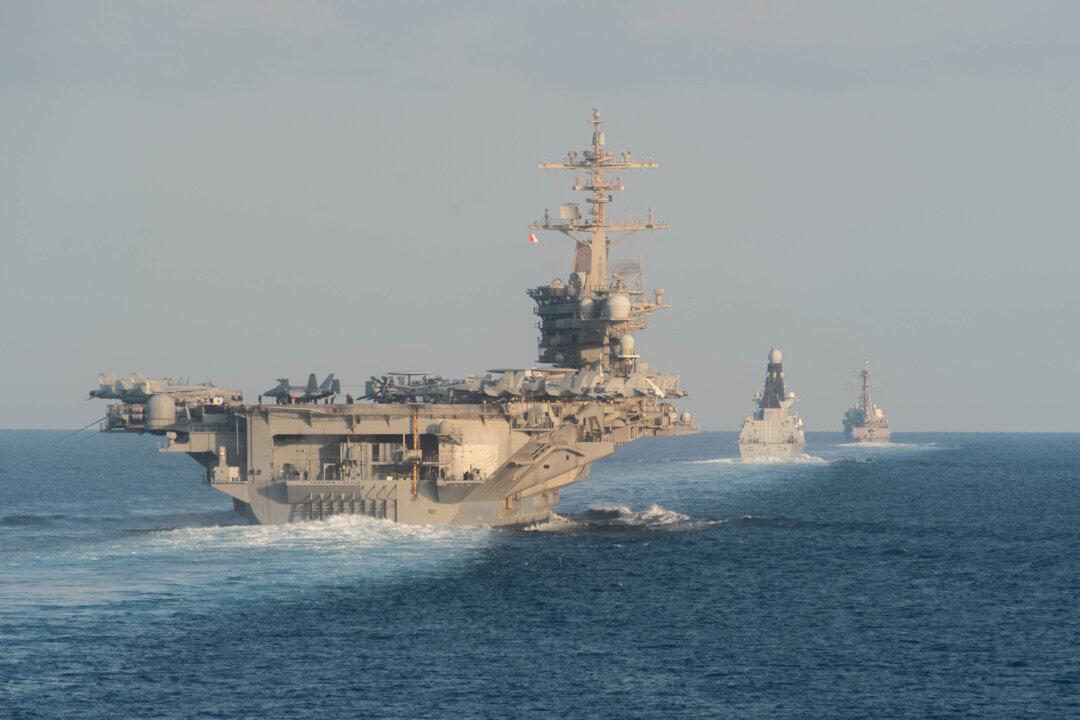The U.S. Navy said it intervened in two separate incidents on July 5 to block Iranian vessels from attempting to seize two oil tankers near the Strait of Hormuz, which separates Iran from the Arabian Peninsula.
“The Iranian navy did make attempts to seize commercial tankers lawfully transiting international waters,” Cmdr. Tim Hawkins, a spokesman for the Navy’s Fifth Fleet, said in a statement to several news outlets. “The U.S. Navy responded immediately and prevented those seizures.”





